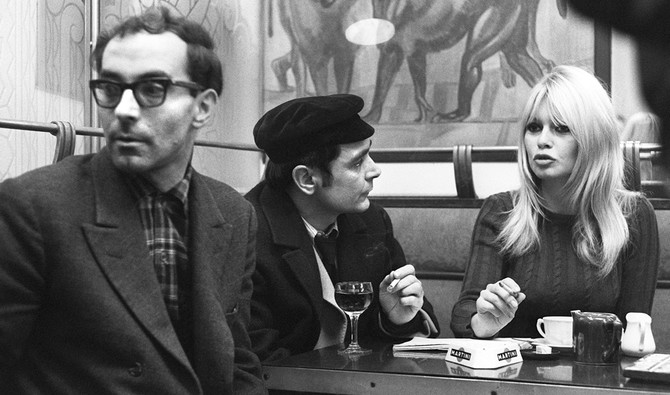ROTTERDAM: Director Jean-Luc Godard is a master of many things. With his stylish, noir-ish debut “Breathless” (À bout de soufflé, 1960), he was established as the French New Wave’s master of moody, monochrome, cigarette-sucking, fedora-touting cool.
With his later, post-1968 protest works, Godard proved a master at thrusting bare-faced Marxist ideology onto cinema screens. And throughout his entire six-decade career, Godard has proved a master of tearing up the rulebook — pioneering a fiercely original, cerebral, grainy, jump-cut, narrative-free and often impenetrable approach which best embodies every cliché, good or bad, about so-called arthouse cinema.
But with “Le Mépris” (Contempt), which turns 55 in December, Godard also proved a master manipulator of human emotion. I recently had the chance to re-watch this 1963 masterpiece on a big screen. It’s a film I’ve seen perhaps a dozen times before, but even anticipating every bitter conversational turn and faux-profound witticism, the emotional rigor of Godard’s sixth picture remained undiminished. I left the cinema in a nervy but electrified state, needing an hour in a quiet café to steady and appreciate the tragic freewheeling chain of thoughts unravelling.
Michel Piccoli plays a French scriptwriter, recently arrived in Rome to sell his soul, and maybe his beautiful young wife — a timeless turn from Brigitte Bardot — to a crass American movie producer (Jack Palance) making a narcissistic version of Homer’s “Odyssey.” With stately satire, German expressionist master Fritz Lang, of “Metropolis” authorship, plays himself as the project’s cynically aloof director.
A movie about moviemaking, but also about love. And hate. The breakdown of Piccoli and Bardot’s marriage — over a single, real-time, 31-minute conversation, inside the claustrophobic, barren walls of their new apartment — is the film’s emotional core, a stunningly virtuoso second act of three.
But there’s so much more to chew on: “Le Mépris” is about Greek gods and movie goddesses. About integrity, lust and power. About America and postwar Europe. About the poetry of Technicolor sunlight. “Le Mépris” is about humans — and how vicious, cruel and transactional we truly are.













